Interview: Mark Dempster's Nothing To Declare journey from homeless to healer
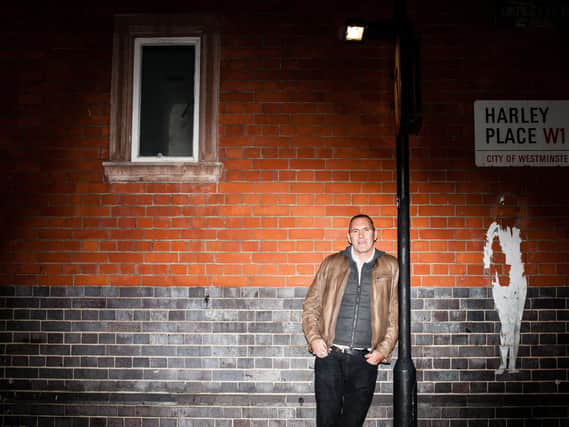

Homeless to Harley Street
Harley Street, London on the edge of the Monopoly board’s most expensive property, Mayfair. Not where you’d expect to find a former drug dealer and homeless addict. Mark Dempster is aware of the irony. In fact he sees it every day when he walks through the cardboard city that is Cavendish Square on his way to the prestigious postcode where he runs his practice helping people deal with addictions.
“Prime real estate,” he says, “but there are at least 20 to 30 people that sleep in that square, and they’re there every morning. They put their cardboard and sleeping bags on top of a wee building and a lot go to work on the building sites. They work all day, get paid in cash, eat, go to sleep on the street, do it again.
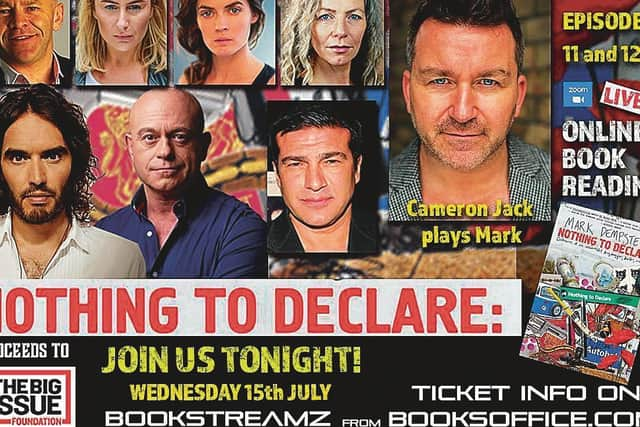

“Yeah, it’s surreal seeing it, but that was my life. Although I haven’t done that for years, I empathise on a deeper level than maybe somebody who hasn’t. There’s a recognition that that was once me and then what comes immediately is a deep sense of gratitude that I was able to go into a facility and get clean, and for the 12-step groups because by attending that I’ve had no relapses and have stayed on the path of recovery since I got clean nearly 24 years ago.”
From Big Issue seller to Trustee of The Big Issue Foundation, 56-year-old Dempster’s journey from a Glasgow childhood to Harley Street via drugs, addiction, recovery and redemption is all there in Nothing To Declare: Confessions of an Unsuccessful Drug Smuggler, Dealer and Addict, published in 2012. A harrowing yet often hilarious autobiography, it is now being brought to life in a series of online readings on BooksOffice.com to raise funds for The Big Issue Foundation.
Homeless in Coronatimes
Coronavirus has hit the homeless community hard, with a shortage of emergency accommodation and vendors unable to sell the magazine until last week. Funds raised by the book reading will be used to help vendors on the street in practical ways: food packages, sanitary products, nappies.
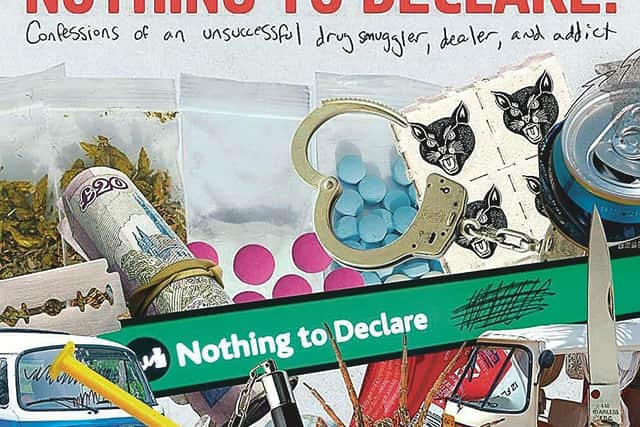

“All of a sudden we went into lockdown and a percentage of these people don’t have homes so they get locked down to sitting outside John Lewis or sleeping outside in the street. OK there’s emergency shelters but they’re at full capacity a lot so there’s a group of people sleeping on the street who have to interact with each other, cos there’s safety in numbers.”
Watch Nothing to Declare: Confessions of an Unsuccessful Drug Smuggler, Dealer and Addict online
In Nothing To Declare Dempster is played by Cameron Jack, Ian Pirie, Kieran Hill and Still Game’s Gavin Mitchell and Mark Cox – Jane McCarry’s in there too as his mum, plus Russell Brand, Ross Kemp, Leslie Ash and many more bring this darkly comic tale to life.
“It’s been great watching them read it,” he says. “I’ve laughed more. It gives you a different perspective on it than hearing your own voice in your head.” Along with the grim reality of addiction there’s no shortage of dark humour, from when a stoned Dempster is trying very hard to follow the etiquette of not touching anything in a Brahmin village in India where he’s buying drugs, but is accused of brushing into a house which leads to a stand off over the penalty of purchasing a goat. Or when he and some German dealers are threatened with rape by a corrupt policeman, his go-to defence is that he couldn’t be the one to suffer this fate on the grounds that he’s Scottish.
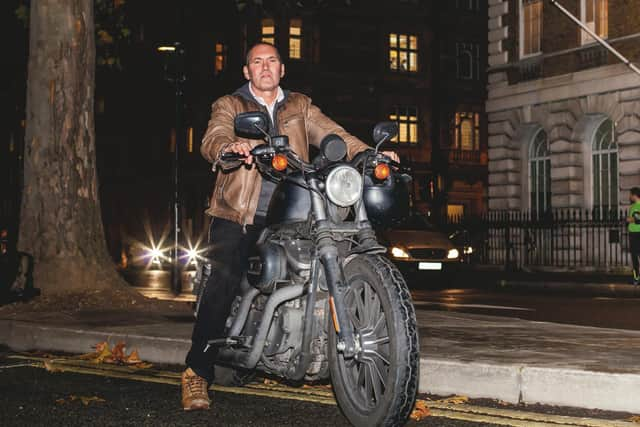

“Honestly when it happened that’s the first sentence that came out of my head. I looked down and he’s undoing his zip and gesturing and I said, ‘No, I’m Scottish,’ like that gives me a pass!” He laughs. “I was like ‘But he’ll do it’ and then I spent ten minutes trying to convince the Germans to do it. I’m saying ‘one of you, certainly not me, has to do this’. If I’d had a gun in that moment I would have probably insisted they do. Well, I don’t know if I would have, but it’s that whole survival thing.”
Childhood trauma
Dempster knew about the survival thing, growing up in Partick the child of an alcoholic father and a beleaguered mother who loved him extra to compensate. With crime normalised thanks to his father’s addiction, young Mark tasted alcohol at primary school and went on to use then sell drugs. But he thought big. His ambition was to become a successful dealer, criss-cossing the globe to visit all the countries mentioned in his Bible, The Great Book of Hashish – Morocco, India, Thailand – sourcing the best product for his customers and smuggling it back.
“I was really interested in the spiritual stuff too, gurus and the Beatles going to see the Maharishi Mahesh Yogi and all these different strands and influences came together to get me out of Scotland.”
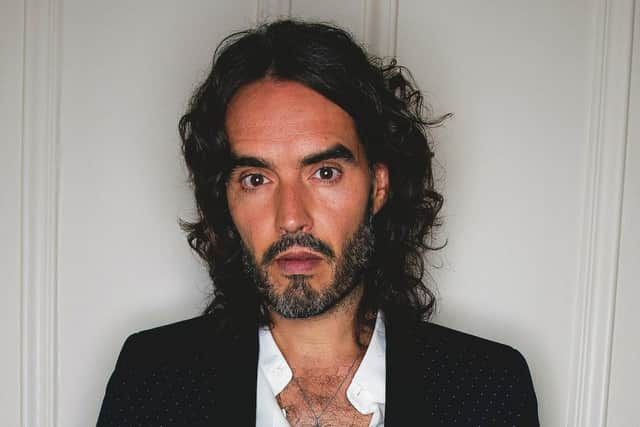

Along with meditation and the buzz of drugs, his choice of career also meant death penalties, psychopaths and prison were part of his daily life.
“Because of my childhood trauma I guess I gravitated towards thrill-seeking or dangerous situations. So of course I would meet people who are psychopaths really, but being able to navigate relationships with people like that was quite easy for me.”
Occupational hazards
Dempster’s occupation led to him being imprisoned in Spain and the UK and ultimately addiction took over. Eventually after overdosing on heroin in a toilet he had an epiphany that turned his life around.
Reaching rock bottom
“I’d shot up some heroin and slightly overdosed and been knocked out and when I came to I had this moment of ‘oh I just want to kill myself.’ I’d been thinking about killing myself for ages and I really prayed then – I don’t believe in anything but I did really pray to something external and cried out from my spirit. And whether in that moment that energy or whatever I was putting out created something, it was not long after that I got clean.
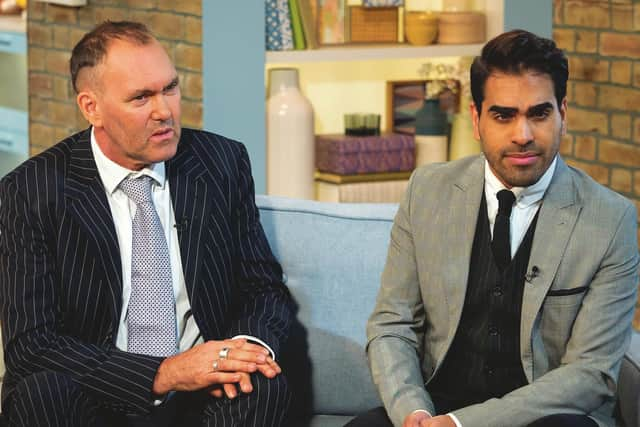

Rehab and the 12-step Programme
“I got clean at 32. Now I’m 56. I went into rehab, did the 12-step programme and started to work, initially training as a therapist working in drugs and alcohol services. I started managing big teams and training for drug and alcohol teams then sitting on government strategy meetings for drug treatment in the UK.”
Dempster trained as a therapist and with a CV full of qualifications and experience, both personal and as a counsellor, and personal experience of drugs, drink and gambling addictions that make him unshockable, he’s one of the country’s leading addiction specialists.
Writing the book
He wrote Nothing To Declare:Confessions of an Unsuccessful Drug Smuggler, Dealer and Addict because in rehab and later when he became a therapist people kept telling him he should write his stories down.
“I’d met Pete Townshend from The Who when I did a talk and he really liked the story, and not just him, but several people throughout. I tell them stories of what happened to me and they go ‘that’s crazy, you’ve got to get this on paper’, people I met in 12-step groups, people like me, addicts getting clean,
I’d talk about things I’d done and they’d go ‘wow’.”
Dempster doesn’t shy away from telling it like it was, changing names and places obviously, but he isn’t interested in sugar-coating. For him, honesty is integral to breaking addiction.
Honest approach
“It was easy to tell the truth because in the 12-step groups and rehab they encourage you to be honest, because honesty is the antidote to our illness. The thinking is it’s a bit like a virus in a computer, that dysfunctional thoughts pollute our system so we must dispute dishonest, unhealthy thoughts and get healthy ones in there and it will create healthy behaviours. Your head wants to be dishonest because you’ve been dishonest about your life, so you must create a value system around honesty. When I started to write the book I wanted to be really honest and my experience is when you are, people relate to it on a much deeper level and empathise.”
This honesty extends to his children Jess and Finn, 14 and 16, who know all about Dempster’s history but like most teenagers aren’t really that interested in their dad’s past adventures.
“I have a very open relationship with them and everything’s on the table for conversation, there’s no taboo, and their mum is like that as well. They talk about their feelings too, thank god. So they know about the book but I don’t think they have any interest in it. I don’t think they’ve read it.”
Harley Street counselling
Dempster still lives by the 12-step programme and treats big name clients (he never says who) as well as ordinary people, who want to be free of their habit of whatever flavour. There’s a whole world of addiction out there. Take your pick. Choose your poison.
Addiction on the rise
“Shopping, drugs, alcohol, gambling, love, sex, co-dependent relationships, internet, video gaming… addiction’s widespread,” says Dempster, who sees it getting worse, especially in lockdown.
“If you look at the moment within society, obesity rates are through the roof, overspending, credit card debt which is only going to get worse, the kids are all getting obsessed with video games. There are so many ways people can try and escape their reality by fixing on something.”
But for many fixing on something doesn’t make them an addict, they can have a drink or drug, place a bet or buy a pair of shoes online then walk away. It doesn’t become an obsession or compulsion. According to Dempster there are extra factors that come into play.
Perfect storm
“Adversity in childhood coupled with genetic predisposing factors like family members who are alcoholics or drug addicts coupled with adversity, trauma, early exposure to drugs and alcohol, that’s probably fertile ground.
“I think it goes back to a rewiring of the reward system when you’re brought up with a level of trauma when there’s somebody volatile around you. But equally there are people who had really good childhoods who still wind up having addictive traits, although there are fewer cases. A lot of this is biological – we’re programmed to hunt and procreate – but on top of that when you get low self-esteem you are looking externally for something to fix you because you don’t accept yourself. That could be because you’re in a family with addiction that prioritises drugs or alcohol or you could be in a family that’s wealthy but don’t have time to nurture you. It’s every social class, it’s not unique to one social group.
“So I work with people making really large sums of money, who are looked on as a success by society, drive McLarens and Ferraris, who work from six in morning to nine at night, real go getters but the negative impact of that workaholism is their kids don’t know who they are. And I’ve got scaffolders and builders and musicians, lords, brokers and politicians, a variety, but they’ve all hit rock bottom. And for every addiction somewhere there’s a 12-step group: sex and love addicts anonymous, co-dependents anonymous, al anon for family members of people with addictions, emotions anonymous there’s game addictions anonymous.”
Why compulsion can help the cure
Dempster believes that the characteristics that make someone an addict can also be their salvation. Just as early familiarity with trauma gave him a taste for risk – nowadays he gets his thrills from ‘fast motorbikes, paragliding, wall climbing, diving, learning to fly little bi-planes before lockdown, zip lining – something that’s got a wee bit of danger but it’s healthy’ – being a dealer gave him the skills to manage people and budgets and it is his compulsive nature that gave him the strength keep going on the road to recovery.
“If you have an addictive personality the likelihood is you have a wilfulness that allows you to push things forward and you can utilise that. And you’re not wanting to just swap into workaholism or exercise addiction, you’re trying to find a middle road, a balance. With addictiveness you never give yourself a break, because there’s often a sense of feeling inwardly flawed, defective. We all have a sense of internal critique but there seems to be more of that with people with addictions and they usually have a heightened sensitivity so they can feel criticised and will internalise, and the other part is they have underlying standards where they feel whatever they do is not good enough. These traits underneath addiction are the things to look at and change.
“You realise when you get sober that no matter what I get moneywise, sexwise, what drugs, alcohol, whatever it is that I ingest, take in to my body, whatever it is I use, there’s always a sense that that doesn’t fill. So there has to be something else, something spiritual – I’m agnostic, but I can get that from connection with other people, friendships and love. What are the important things in your life that give you a sense of contentment and happiness?”
Dempster also gets a huge buzz from his job, helping people break addictive patterns and develop quality of life and empowerment.
Breaking the addiction
“That reinforces in me my own recovery journey because then I know that it works. If you have an addictive personality you have to break the addiction, stop the pattern of behaviour that keeps you enslaved – the word addiction comes from Latin and means to be enslaved. Addiction tries to restrict you, makes you small, so when you see somebody growing and breaking the chains it’s very powerful.”
Then he adds, unnecessarily for anyone who’s listened to or read his book.
“I like working for myself, I’m not really into working for other people. I’ve got a rebellious nature.”
Lust for life
For the future Dempster wants to build his Harley Street practice, treating people face-to-face and online, set up a satellite practice in the Middle East and would love to see his book turned into a film.
“I guess the way I see it is I had to almost go through every single thing to get to where I am now. So I am really grateful that I have an addictive personality, which sounds crazy because obviously I can’t drink or take a drug again and I’ve got to constantly monitor my addiction in other areas, but because my addiction took me so low at times to such painful places, when your life is normal and it’s good, you really appreciate it. I think I appreciate life on a deeper level.
“People in recovery excel much more in their life because they push themselves, have a curiosity, or they’re more driven and that’s definitely the case for me. There’s always something else, what’s next?
“I don’t know how many times I overdosed or had drugs in my system that could have killed me, going through death penalty borders, hundreds of times, maybe thousands I could be dead. Using a chemical like heroin every day, and in the purest form like in Thailand, injecting it straight into my bloodstream, the odds are that you’re going to take just too much and I must have done that hundreds of times, hundreds. Being so close to death has made me really appreciate life.”
Nothing To Declare: Confessions of an Unsuccessful Drug Smuggler, Dealer and Addict is on BookStreamz from BooksOffice.com and is free, but donations go to the Big Issue Foundation. The book is also available, £8.99, along with his self-help book, The Ongoing Path: a guide to stopping addictive behaviour and fulfilling ambition, £12.99 from www.markdempstercounselling.com
Mark Dempster Counselling, 7 Harley Street, London W1G 9QY; tel: 0203 239 7061.
xxxxxxxxxxxxxxxxxxxx
A message from the Editor:
Thank you for reading this story on our website. While I have your attention, I also have an important request to make of you.
With the coronavirus lockdown having a major impact on many of our advertisers - and consequently the revenue we receive - we are more reliant than ever on you taking out a digital subscription.
Subscribe to scotsman.com and enjoy unlimited access to Scottish news and information online and on our app. With a digital subscription, you can read more than 5 articles, see fewer ads, enjoy faster load times, and get access to exclusive newsletters and content. Visit https://www.scotsman.com/subscriptions now to sign up.
Our journalism costs money and we rely on advertising, print and digital revenues to help to support them. By supporting us, we are able to support you in providing trusted, fact-checked content for this website.
Joy Yates
Editorial Director